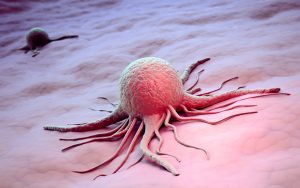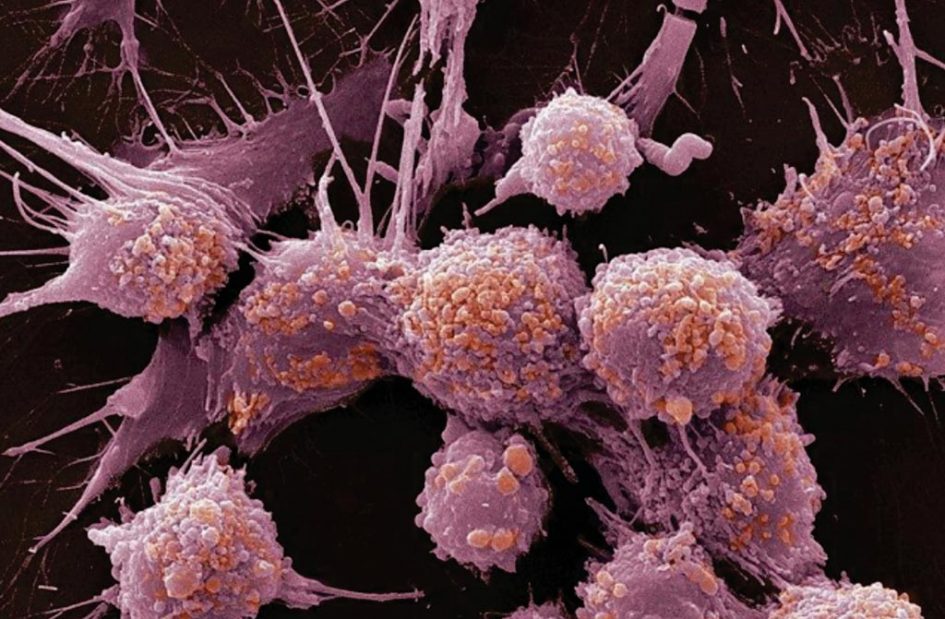Scientists at Northwestern University have developed a new therapy to treat cancer. It is based on a synthetic nanoparticle masquerading as cholesterol, which is necessary for cells. As a result, cancer cells begin to starve and die.
While the study looked at lymphoma cells, the scientists say the new experimental drug could be effective in other cancers with a similar  appetite for cholesterol, such as kidney and ovarian cancer. The study was published in the Journal of Biological Chemistry.
appetite for cholesterol, such as kidney and ovarian cancer. The study was published in the Journal of Biological Chemistry.
“Our therapy targets cancer cells that depend on cholesterol uptake and disrupt the overall balance of the cell,” said study co-author Dr. K. Shad Thaxton, associate professor of urology at Northwestern University. “We found that the cell is trying to compensate by shutting down pathways necessary for survival. We hope that this new mechanism will help fight different types of cancer.”
Synthetic biological nanoparticle therapy is the first of its kind to target cancer cells by specifically modulating cellular cholesterol https://en.wikipedia.org/wiki/Cholesterol metabolism and then triggering this new way of killing cells. In addition, scientists show that the drug is not toxic to normal cells, which do not have the same cholesterol metabolism disorders as cancer cells.
